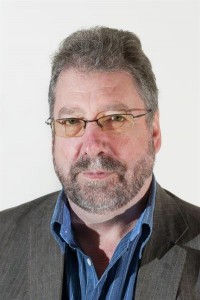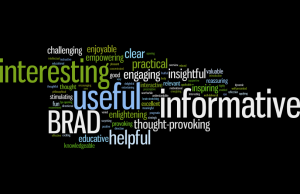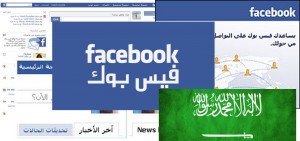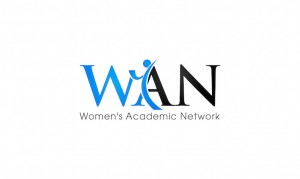 The following funding opportunities have been announced. Please follow the links for more information:
The following funding opportunities have been announced. Please follow the links for more information:
Arts and Humanities Research Council
Ten debates with themes of ‘The Way We Live Now’ and other individual debates, will be held to mark the tenth anniversary of the AHRC at universities and cultural organisations around the UK over the next year. An essay competition linked to the debates, with a series of three deadlines for each debate series, will be opened to help capture the ideas expressed at the debates. The first essay will relate to the first four four debates (Curating the Nation, The Challenge of Change, Faith and Education and Social Cohesion and the Common Good). there will be ten prizes of £250 for the best essay on each of the ten debates and a best overall essay prize of £500. Closing Date: 30/10/15.
Biotechnology and Biological Sciences Research Council
The Sustainable Agriculture Research & Innovation Club (SARIC) has funding available for research grants (£3.5M) and research translation grants (£1.5M). Applications must fit the key challenge of predicitve capabilities for sustainable agriculture. Closing Date: 16/09/15 at 16:00.
Engineering and Physical Sciences Research Council
The Commitment to Privacy and Trust in Internet of Things Security (ComPaTrIoTS) Research Hub is seeking to make a step-change in the broad research areas of cyber security. This call aims to invest up to £9.8M over three years to support a small number of leading UK universities working coherently together as a single internationally recognised “Research Hub”, across the relevant disciplines, carrying out inter-related and interdisciplinary research into privacy, security and trust in the Internet of Things. Deadline for Registration of Intent: 20/07/15 at 17:00 Closing Date: 02/09/15 at 16:00.
Synthetic Biology Applications for Protective Materials. The EPSRC and the Defence Science and Technology Laboratory (DSTL) seek to establish a number of cross-disciplinary consortia to expand research capability in the area of Synthetic Biology around the central challenge of creating stronger, and more resilient protective materials. Funds of up to £2 million are available for projects up to three years in duration. Closing Date: 1/10/15 at 16:00.
The Thermal Energy Challenge invites proposals for collaborative research projects to undertake fundamental research that will investigate novel solutions in the thermal energy area. Up to £5M is available tfor proposals related to the themes of Integration of thermal energy solutions into buildings, Thermal energy conversion technologies and Hot and Cold energy storage. Deadline for Registration of Intent: 30/06/15 at 23:59 Closing Date: 4/8/15 at 16:00.
Innovate UK
Fuels and lubricants: reducing cost of ownership. This MOD call seeks proposals with a value of up to £1M for novel ideas to reduce the cost of ownership of military assets through innovative approaches to fuel and lubrication use. Application Registration Deadline: 29/7/15 Closing Date: 5/8/15
Medical Research Council
The MRC and Global Alliance for Chronic Diseases (GACD) are investing up to £2M into the Prevention and management of chronic lung diseases. Proposals are welcomed that will generate new knowledge on interventions and their implementation. Closing Date: 15/09/15 at 16:00.
Natural Environment Research Council
CONICYT-NERC joint call on “Determining the impacts of ice loss and deglaciation on marine and terrestrial ecosystems in a region of rapid climate change“. Up to £1.5m is available to fund three grants at ~£500k each (at 80% FEC) and an additional £300K from the overall budget is set asside in total to cover collective logistics of the projects. Closing Date: 27/7/15.
South African National Research Foundation
The National Research Foundation (NRF) of South Africa in partnership with prominent UK academies (i.e. the British Academy, the Royal Academy of Engineering, and the Royal Society) and the British Council is pleased to invite applications for the UK – South Africa Researcher Links grants. Closing Date: 30/06/15.
Wellcome Trust
A Four-year PhD Studentship has been created to allow promising students undertake in depth post-graduate training inclusive of a first year of taught courses and laboratory rotations followed by a three year PhD project at one of the 31 programmes based in centres of excellence which can provide specialist training in developmental biology and cell biology, genetics, statistics and epidemiology, immunology and infectious disease, molecular and cellular biology, neuroscience, physiological sciences or structural biology and bioinformatics. Students are recruited annually by the individual Programmes for uptake in October each year but the recruitment begins in the preceding December. Closing Date: Open.
Intermediate Clinical Fellowships fund is for medical, dental, veterinary or clinical psychology graduates who have had an outstanding start to their research career. Fellowships can be for up to five years and will cover research expenses and salary. Closing Date: 30/10/15.
A Postdoctoral Research Training Fellowships for Clinicians has been created to allow the refreshing their research skills or to explore a new research field or environment, to gain the skills that will help with longer-term research visions. Awards are two to four years and fellowships typically would range from £250K to £400K and would cover salary and some non-salary costs. Closing Date: 30/10/15 at 17:00.
The Research for Health in Humanitarian Crises (R2HC)programme funds public health research aiming to improve health outcomes of what works in humanitarian crises. Proposals are being requested on Communicable diseases, including epidemics, Sexual and reproductive health and/or gender based violence, Cost effectiveness of health interventions or Ethical issues in the context of public health operations or research during humanitarian crises. Those interested should send an expression of interest. Closing Date: 20/07/15.
The Translation Fund aims to develop new technologies in the biomedical area to help with unmet healthcare need. Concept notes must be provided in the first instance. Closing Date: 16/10/15 at 17:00.
Please note that some funding bodies specify a time for submission as well as a date. Please confirm this with your RKEO Funding Development Officer
You can set up your own personalised alerts on Research Professional. If you need help setting these up, just ask your School’s/Faculty’s Funding Development Officer in RKEO or view the recent blog post here.
If thinking of applying, why not add notification of your interest on Research Professional’s record of the bid so that BU colleagues can see your intention to bid and contact you to collaborate.
























 Fourth INRC Symposium: From Clinical Applications to Neuro-Inspired Computation
Fourth INRC Symposium: From Clinical Applications to Neuro-Inspired Computation Writing policy briefs
Writing policy briefs Upholding Excellence: The Concordat to Support Research Integrity
Upholding Excellence: The Concordat to Support Research Integrity Today’s Documentation Will Serve Tomorrow’s Justice
Today’s Documentation Will Serve Tomorrow’s Justice ECR Funding Open Call: Research Culture & Community Grant – Application Deadline Friday 12 December
ECR Funding Open Call: Research Culture & Community Grant – Application Deadline Friday 12 December MSCA Postdoctoral Fellowships 2025 Call
MSCA Postdoctoral Fellowships 2025 Call ERC Advanced Grant 2025 Webinar
ERC Advanced Grant 2025 Webinar Horizon Europe Work Programme 2025 Published
Horizon Europe Work Programme 2025 Published Horizon Europe 2025 Work Programme pre-Published
Horizon Europe 2025 Work Programme pre-Published Update on UKRO services
Update on UKRO services European research project exploring use of ‘virtual twins’ to better manage metabolic associated fatty liver disease
European research project exploring use of ‘virtual twins’ to better manage metabolic associated fatty liver disease